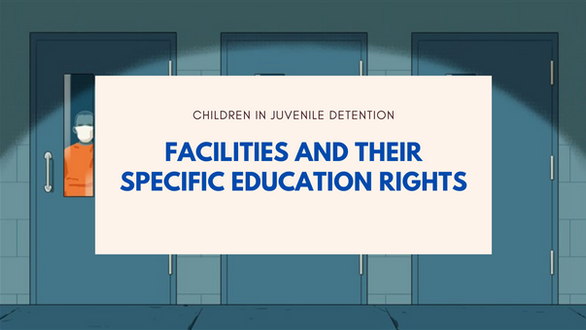All public schools are required to locate all students with disabilities, regardless of the severity of the disability. (1) The Child Find mandate helps states implement a statewide, coordinated system of early childhood intervention. If a student with a disability has not been evaluated by the school district, the parents are entitled to request an evaluation. However, parents are NOT obligated to initiate this process, as is clearly outlined in the Child Find mandate of the Individuals with Disabilities Education Act (IDEA). According to the law in place, “school districts are required to have a process for identifying and evaluating children who may need special education and related services, such as counseling or speech therapy.” (2)
1.) Wright, P. & Wright, P., Esq. “The Child FInd Mandate: What Does It Mean to You?” Wrightslaw.com. 8 Jan. 2019
2.) Lee, A., JD. “Child Find: What It Is and How It Works.” Understood.org. 2018..
Nonetheless, school districts that have neglected to fulfill the Child Find mandate often deny parents’ request for a psychoeducational evaluation of their child, usually because the faculty claims to have no reason to believe the student has a disability. In this case, the parents are entitled to a due process hearing in order to get their student evaluated. Additionally, parents’ whose child is denied an evaluation may be entitled to compensatory education fund their own evaluation and a lack of services resulting from no evaluation. depending on the outcome of their due process hearing.
The landmark case W.B. v. Matula, et. al. highlights the negative consequences that can arise when a school neglects to identify and evaluate students with disabilities. Before her son entered the first grade, W.B. talked with various faculty members at her son’s school to address her concerns with his educational experience moving forward. The student’s disabilities had not yet been evaluated, and the school refused to offer any help despite W.B.’s repeated requests over many months. Eventually, she took her son to a psychologist for an evaluation, which showed that the student had serious neurological issues. When the school refused to reimburse W.B. for the cost of visiting the psychologist, she finally requested a due process hearing so as to ensure that her son would receive help upon entering the second grade. The school continued to refuse to help the student, so the case was brought to the U.S. Court of Appeals for the Third Circuit. The 1995 ruling found that the school not only had neglected the Child Find mandate but had also violated Section 504 of the Rehabilitation Act. W.B.’s son suffered from, among other things, ADHD, which entitled him to services outlined under Section 504. As a remedy, the Court ruled that monetary compensation for W.B. and her family were in order.
Another relevant case that has solidified the responsibility of schools to fulfill the Child Find mandate is Jaime S. v. Milwaukee Schools. In a class action lawsuit against Milwaukee Public Schools and the Wisconsin Department of Public Instruction. In 2007, the Court ruled that Milwaukee Public Schools had violated the IDEA for at least five years. It found that “between 2000 and 2005, the school district failed to evaluate students who had suspected disabilities, failed to review all relevant data to determine the child’s needs, and routinely suspended students instead of determining if they needed special education services.” It further ruled that the Wisconsin Department of Public Instruction was guilty of failing to fulfill its oversight responsibilities in ensuring that all school districts complied with the IDEA.
Current law requires schools to be responsible for locating and evaluating students that are suspected to have a disability. As outlined by the Child Find mandate for all schools, parents are not responsible for initiating these processes on their own. Nonetheless, these legal requirements are often neglected, and parents often resort to taking matters into their own hands. This is inconsistent with the law and must not be tolerated. Parents who have resorted to such actions are entitled to a due process hearing and may be eligible for monetary compensation for any extra expenses they have shelled out in obtaining proper services for their children.











